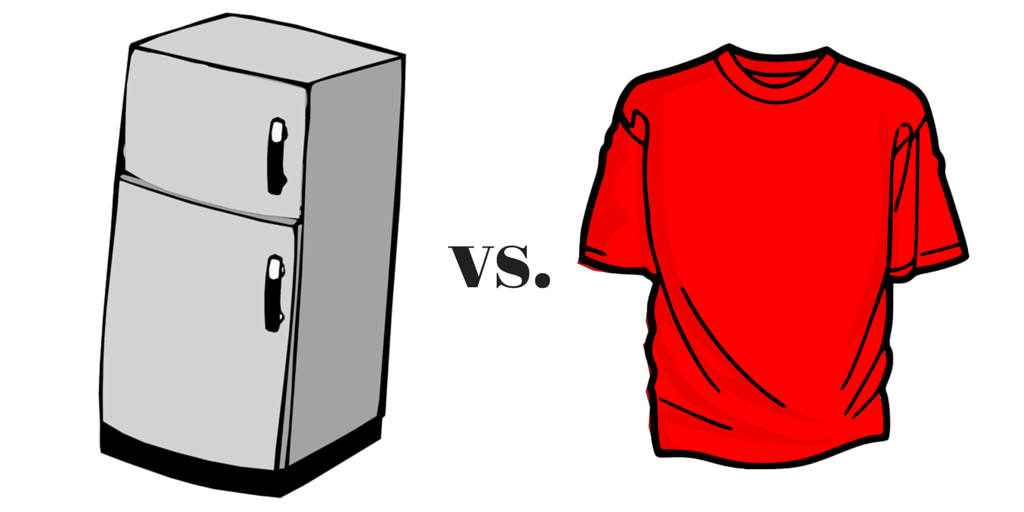|
by Camela Thompson
I was recently in an interesting Twitter conversation with @TheWriteMunz. He had heard my tirade on Jurassic World and wanted to know my opinions on Fridging versus a Red Shirt. First, let's start with the definitions. Fridging Fridging is a specific technique used to motivate protagonist characters into action. The writer creates a traumatic situation involving someone the protagonist cares deeply about. Often the protagonist's family member (or entire family), wife, girlfriend, partner, or best friend have something horrific done to them, usually ending in death. The body is left so the main character finds it and is further traumatized. The trope originates from the storyline of Green Lantern. Major Force literally leaves the protagonist's girlfriend shoved in a fridge for him to find later. I explained this concept to friend and she told me, "Once you know to look for it, it's everywhere." She's right and there's a reason. The death, mutilation, or rape of a loved one is a very compelling reason to seek vengeance. It's often seen in comic books and video games, but it's all over the place in television, books, and movies. Fridging Examples These are more obvious examples where the fridging incident is a main feature of the plot. There are plenty of movies, like Star Wars, where more distant characters are killed off to motivate a character into action (Luke Skywalker coming back to his Uncle Owen's farm and finding the crispy bodies of his uncle and aunt). Max Payne - A cop comes home to the gruesome murder of his wife and baby. His partner is also murdered. He sets out to bring the people who ruined him to justice. Supernatural - So many to choose from. The Winchester boys lose their mother, Mary, who is burned alive on the ceiling of baby Sam's room. Sam loses his girlfriend the same way, watching her burn. Both are motivating factors in their drive to hunt demons. There are many, many more characters shoved into refrigerators on this show throughout the seasons - Google it. The Barber - A cop is convinced he knows the identity of a serial killer and becomes obsessed. When the case is thrown out and his name run through the mud as a dirty cop, he shoots himself while his son is reading upstairs. Twenty years later, the son goes on a mission to bring the escaped killer to justice. The Fugitive - A woman is brutally murdered in her home and her husband is accused of the crime when he comes home to an active investigation of the crime scene. The husband escapes police custody in an accident and goes on the run, professing his innocence and searching for the killer along the way. Red Shirt The Red Shirt trope comes from the original Star Trek television series. If you've ever seen the show, you know that the characters in the red shirts have a limited life span from the time of their appearance (except for Scotty because he's a badass). Red Shirt characters have little or no direct tie to the main character and are used to move the plot forward. You'll see them most often in crime mysteries, thrillers, and horror. It's common to have a Red Shirt appear in the first chapter of a thriller to illustrate the presence of a killer (I've done it myself in All the Pretty Bones). A great example of this in television is Supernatural, which uses the trope not only to demonstrate the presence of a killer, but also hint at what it is and how it works. Why wouldn't it be okay to use these? I use the Red Shirt trope, so I'm not going to argue against it unless you rely too heavily on a limited set of main characters and only have appearances from people who strictly serve the purpose of dying outside of your core character group. There are people in the world who need to exist for things like gas stations, grocery stores, and police departments to keep running. Remove everyone and you have a problem unless you're intentionally writing a dystopian thriller. As long as we have stories with murderers, there will be Red Shirts. If someone doesn't die, there isn't a murder to solve. Fridging is more problematic and, honestly, a bit tired. I would challenge people to find more creative means of motivating their characters. There are a lot of reasons why people join the police force. Yes, some of them involve murder, but branch out! Maybe your superhero just has a psychological complex--those can be interesting without an entire family being slaughtered. The biggest problem with Fridging is the majority of victims are women and minorities. It's so prolific that the term Women in Refrigerators was coined a long time ago to capture the phenomenon. I gave a more equal opportunity range of examples above (dads are great fodder, apparently), but our straight white male protagonist is often motivated by something happening to his main squeeze. More examples of Fridges in Comics A great post by The Promethean Playground on why we need to do better
1 Comment
|
Camela ThompsonFreelance writer and Dark urban fantasy author featuring vampires with bite. My BooksCategories
All
Archives
July 2020
|

 RSS Feed
RSS Feed